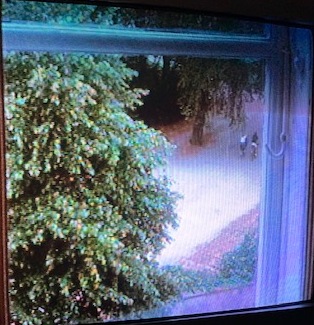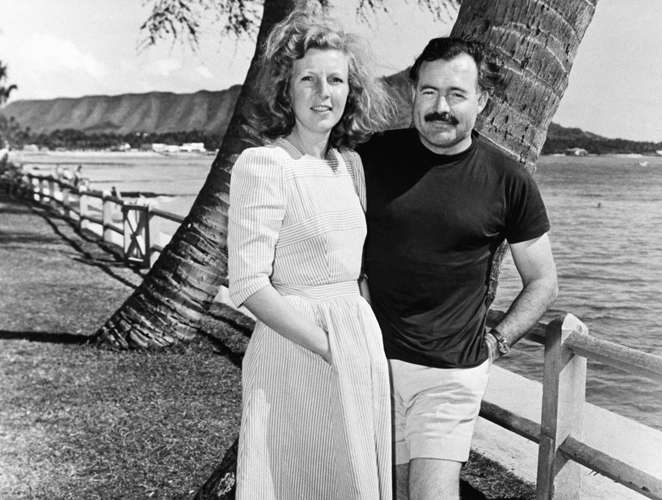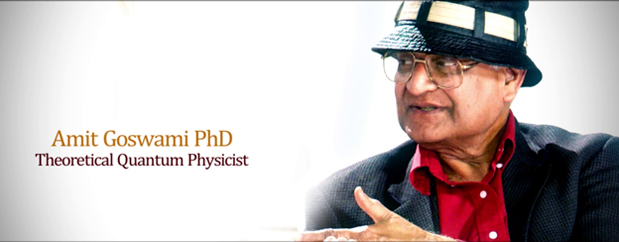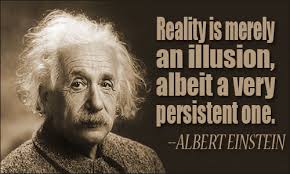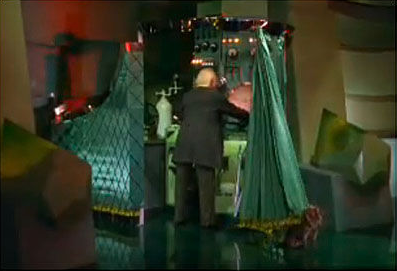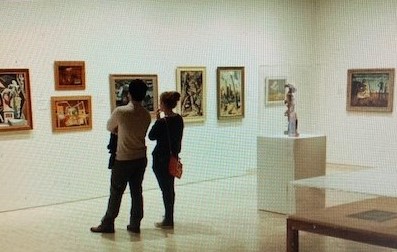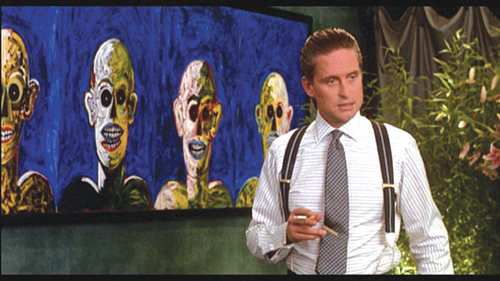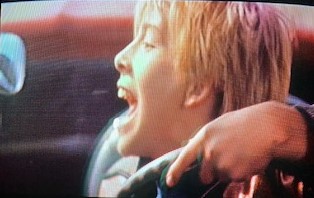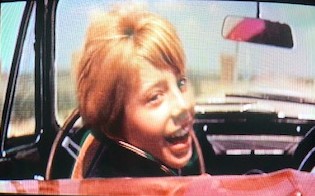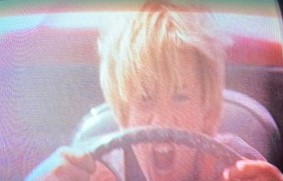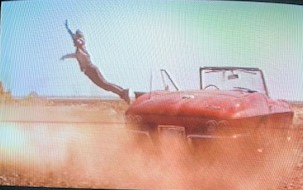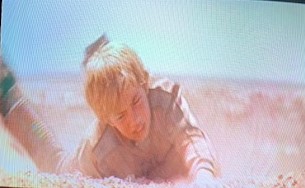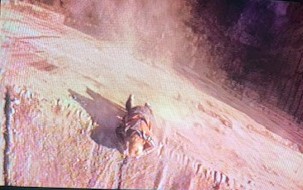|
home | what's new | other sites | contact | about |
||||||||||||||||||||||||||||
|
Word Gems self-knowledge, authentic living, full humanity, continual awakening
Editor's Essay: Creativity
return to "Creativity" main-page
“I would say that the simple reason why the majority of scientists are not creative is not because they don't know how to think, but because they don't know how to stop thinking. There is clearly an intelligence at work that is far greater than the mind.” Eckhart Tolle
“You can’t make the creative act happen. You have to do certain things, otherwise it won’t happen. But it won’t happen while you are doing them.” “What is required is an attentive response to something real and other than ourselves, of which we have only inklings at first, but which comes more and more into being through our response to it – if we are truly responsive to it. We nurture it into being; or not. In this it has something of the structure of love.” - Dr. Iain McGilchrist, The Matter With Things: Our Brains, Our Delusions
Editor's note: The following constitutes a summary of the research by Harman and Rheingold.
coming from beyond consciousness Certain people seem to have extraordinary experiences which literally make history and change the world – with insights so far-reaching and profound that they revolutionize science, the arts, and society itself. G.N.M. Tyrrell, an early British investigator of inspiration, expressed it well in The Personality Of Man: It is a highly significant, though generally neglected, fact that those creations of the human mind which have borne preeminently the stamp of originality and greatness, have not come from within the region of [local human] consciousness. They have come from beyond consciousness, knocking at its door for admittance: they have flowed into it, sometimes slowly as if by seepage, but often with a burst of overwhelming power. This “breakthrough experience” has long been honored, if not explicitly, by a wide variety of terms, such as creativity, inspiration, poetic imagination, intuition, mediumship, and revelation; also “channeling,” implying that the image or information is coming via some unspecified source outside, what we consider to be, the normal bounds of consciousness and awareness.
the spectrum of creativity: from the mundane to the miraculous "The action of the child inventing a new game for his playmates; Einstein formulating a theory of relativity; the housewife devising a new sauce for the meat; a young author writing his first novel - all of these are, in terms of our definition, creative, and there is no attempt to set them in some order of more or less creative." Carl Rogers, On Becoming A Person
a small element on a vast continuum One of the great discoveries of physics was that the ordered array of different colors in a rainbow, light refracted through a prism, constitutes but a narrow portion of a vast, continuous electromagnetic spectrum.
A similar momentous discovery has been emerging over the last century with regard to the human mind. Through the ages there had been instances of “genius” or “inspiration,” superior capabilities of the mind, manifesting. Gradually, through the scholarship of men such as Sigmund Freud, F.W.H. Myers, and Carl Jung, it became apparent that these recognized instances of creativity are, in a sense, the “visible spectrum” of a far vaster range of manifestations of the creative subconscious mind.
nature or nurture Were the breakthrough experiences of Descartes or Mozart the result of some inborn capacity – or did they somehow learn to break through? Are there innate capacities we all possess but lack only the knowledge and training to make use of them? In the following case histories of scientists, we find that not only many scientific discoveries but the very foundation of science itself were built on “breakthrough” experiences. It is indeed ironic that science, the institution that has most strongly branded these mystical experiences as daydreams, delusions, and hallucinations, appears to have been born in just such a state – in a fever dream, in a flash insight, to one who could not solve a problem with the conscious portion of the brain.
the etymological detective A history of language offers clues to certain kinds of preserved meaning, an encoding mechanism, in the face of changing cultural values. “Intuition” can be interpreted as “knowing from within.” “Inspire” literally means “inner breath.” A group of related words, including “knowledge,” “gnosis,” and “ignore,” hint at an active but subtle contrast between knowing something and ignoring it. “Insight” seems to acknowledge the linkage between attention and understanding. By cultivating insight, by looking at what is in our own minds, we gain insights, in the sense of new and useful understanding. The word “genius” contains an allusion to an older word “genie.” A genie is a magic spirit, sometimes benevolent, now considered to be mythical, able to grant miraculous favors. This notion lives today in the sense that people believe that certain talented individuals possess the aid of some extraordinary benefactor, a resident genie. Perhaps what we call “genius” is a learned state of consciousness. Perhaps many more of us could hear inner melodies, find guidance and inspiration, achieve breakthrough insight, if we would pay more attention to the fleeting images and quiet intuitions presented to us by the creative mind.
the difference between mere talent and genius Creativity researcher John Curtis Gowan, in “The Journal Of Creative Behavior,” draws our attention to the fact that: "When Michelangelo did the Sistine Chapel, he painted both the major and minor prophets. They can be told apart because, though there are cherubim at the ears of all, only the major prophets are listening. Here, exactly stated, is the difference between genius and talent." Editor’s note: Is this not a remarkable and profound distinction between talent and genius?
Isaiah listening
listening to what If the people who experience the "breakthrough state" are all listening, what are they listening to? Can we all learn how to tune in and listen?
tip of the iceberg As various persons in diverse walks of life have undergone their own breakthrough experiences, they have all wrestled to describe these insights. “Inner listening” is the term they seem to use most often – a capacity to hear the “speech” of the “other self.” Other metaphors express a sense of tapping into a “flowing” source of creative imagination, an “underground river,” or “wellspring of inspiration.” Others have spoken of “opening the mind’s gate,” or a “lightning flash” of intuition. Few theories in the psychological sciences are now so well established as the discovery that only a small part of our total mental activity takes place in the conscious part of the mind, while a vast portion takes place somewhere in our unconscious. This portion involves continual processing, night and day, of images, ideas, and sensations. There seems to be something almost “unconscious” about the way nearly everybody ignores the existence of their unconscious. The very word “unconscious” connotes a region where we have buried all manner of rejected and denied memories and urges. Our culture has not encouraged us to think about the creative side of the unconscious, and this bias is mirrored in a similar one within scientific thought.
Freud versus Myers: the unconscious as rubbish heap or gold mine One of the earliest conflicts in the history of research into human consciousness was between two concepts promoted by Sigmund Freud and Frederic Myers. The Freudian concept was a product of psychopathology, emphasizing the negative role of the unconscious, the inhibiting, the repression, of the full flower of human potential. Myers, on the other hand, emphasized the role of the unconscious as the source of intuition and creativity. As Myers put it, the unconscious might more profitably be regarded as “a gold mine as well as a rubbish heap.” Myers’ 1903 book “Human Personality and Its Survival of Bodily Death” laid out a daring map of a vast terrain, at that time, little explored by science. He spoke of unconscious processes, sleep and dreams, hypnosis, creativity and inspiration, psychic phenomena, and evidences of the survival of the personality after physical death. William James, the father of psychology in the United States, was “disposed to think that Frederic Myers will always be remembered in psychology as the pioneer who staked out a vast tract of mental wilderness and planted a flag of genuine science upon it.” But history has painted it otherwise.
Carl Rogers, On Becoming A Person
Carl Rogers, in his respected work, "On Becoming A Person," offers the following set of internal and external conditions that must be present to ensure that creative inspirations will be constructive instead of destructive: "To the extent that the individual is denying to awareness (repressing) large areas of his experience, then his creative formings may be pathological, or socially evil, or both. To the degree that an individual is open to all aspects of his experience, and has available to his awareness all the varied sensings and perceivings which are going on within his organism, then the novel products of his interaction with his environment will tend to be constructive for himself and others." What are the conditions for constructive creativity? Rogers listed three “inner conditions” and two “outer conditions.” The inner conditions are: 1. Openness to Experience: Extensionality. This is the opposite of psychological defensiveness, of rigid boundaries in concepts, beliefs, perceptions, and hypotheses. Openness to experience implies a tolerance for ambiguity where ambiguity exists, and the ability to receive much conflicting information without forcing closure in the form of “I agree,” “I disagree,” “I believe,” “I don’t believe,” “It can’t be true,” “Science says…,” “My religion teaches…” 2. An Internal Locus of Evaluation. The value of a creative person’s product is established not by the praise or criticism of others but by oneself. This does not mean that the person is oblivious or unwilling to be aware of the judgments of others. But the final evaluation lies in the person’s own organismic reaction to and appraisal of the creation. It is right when it feels satisfying and authentic. 3. The Ability to Toy with Elements and Concepts. The ability to play spontaneously with ideas, colors, shapes, relationships – to juggle elements into impossible juxtapositions, to entertain what might seem to be wild hypotheses, to take the standard view as problematic, to express the ridiculous, to translate ideas and principles from one form to another, to transform opposites into improbable but logical equivalents. From this toying and exploration there inevitably arises the hunch, the vision of life, in a new and creative way. These are the internal conditions we must foster in order to encourage the breakthrough insights. But we do not live in a void. If we find ourselves in a destructive [cultish] environment, a certain amount of this negativity will influence us and disrupt the creative process. Therefore, there are also two external conditions we must seek for: 1. Psychological Safety. This may be established by having an environment in which the person is accepted as one of unconditional worth; no external evaluation, no one is criticizing; and there is empathetic understanding from others. 2. Psychological Freedom. Creativity is fostered when the individual enjoys complete freedom of symbolic expression – the freedom to think, to feel, to be whatever is most true for oneself. This should not be confused with permissiveness, which is soft and indulgent. It is permission to be free, which is also permission to be responsible. It is permission to be afraid, to be wrong, to be confused.
'Satan got to you' Editor’s note: There is no such being as Satan. But this does not mean that a mental construct of a fabled “Satan” will not continue to ravage and destroy the lives of true-believers – until they are set free by a clearer view of non-cultish reality. The general population in the past, and even today, had a negative image of any talk of “insights” or the creative muse. This is “Satan deceiving you,” they proclaim, a metaphysical position encouraged by demagogic clergy as part of their power-and-control, their fear-and-guilt, mind games.
case studies: what the creative ones of history have said about their own breakthrough insights We will be reviewing many of these testimonies. When the personal statements concerning great creative breakthroughs are examined, we find that certain elements are present in every one of these accounts. One of the earliest investigations was made by British writer, Graham Wallas, in his 1926 book, “The Art of Thought.” He proposed that the creative process consists of four components: 1. Preparation 2. Incubation 3. Illumination 4. Verification John Curtis Gowan discussed the Wallas paradigm: "By 'incubation' he meant any technique of relaxation of the conscious cognition (left-hemisphere function) [but, instead, to permit or encourage] dreams, daydreams, fantasy, hypnosis, meditation, diversion, play, etc., which allow subliminal processes (right-hemisphere functions) to operate. He saw 'preparation' (academic discipline) as the necessary, and 'incubation' (relaxation) as the sufficient condition for creative insights to emerge." Most people are accustomed to thinking of achievers like Brahms and Beethoven as “naturally inspired.” Yet these achievers themselves took pains to point out that certain inspirations seemed to come from some place other than what they normally thought of as “self.” Young Mozart's companions learned that he was likely to halt their games at any moment, admonishing his playmates to be silent while he scribbled out the melodies that rushed into his mind. And the great mathematician Ramanujan, a sensitive and beautiful spirit, kept a notepad next to his bed to write down the formulas that, he believed, were revealed to him by a goddess of his native Indian village. (See the movie of his life's work, “The Man Who Knew Infinity,” and the great emphasis Ramanujan, through the filter of his own belief-system, placed on sacred intuition as the source of his astounding mathematical achievements.)
Poets and writers have always been particularly aware of the elusiveness of inspiration and have often noted how the creative muse can come, unbidden, and virtually dictate entire lines, passages, or works. Editor’s note: See the testimony of songwriter Paul Stookey (of “Peter, Paul, and Mary”) concerning the “channeled” transmission of the extraordinarily beautiful music and lyrics, “The Wedding Song.”
The writer, George Eliot, told J.W. Cross that, in all of what she considered to be her best writings, something that was not herself spoke through her; that, she felt her own personality to be merely “the instrument through which this spirit, as it were, was acting.”
And George Sand, in a letter to another writer, offered: “The Wind plays my old harp as it lists… It is the other who sings as he likes.” All of the ancient biblical prophets spoke in this vein: "The burden of the Lord was upon me, and I was required to write..." Editor’s note: Despite the beauty and wonder derived via the creative muse, some fundamentalists will insist that such marvel is the product of Satan. This is a serious problem – for those thus deluded. It is this identical prevaricating, the very same untoward dynamic, that prompted Jesus to sternly address his attackers who attributed the good that he was doing to Satan. He called this kind of cultish obtuseness, this willful despising of the obvious creative energies of God, “the unpardonable sin.”
preparation, the in-put mode Your unconscious “idea processor” is waiting at your beck and call. All you have to do is assign it a problem, instruct it, and it will immediately work toward a solution. It does this for you most of the time anyway, whenever we have a problem that the conscious is to solve. But the more clearly, completely, and intently you formulate a question and direct it to the unconscious, the more quickly and effectively the unconscious can come up with an answer. 1. Clearly, because the more precisely you can state any problem, the more swiftly and accurately your unconscious “idea processor” can churn out the solution. 2. Completely, because the more fully and thoroughly you program a computer, the more sophisticated and precise its answer will be. 3. Intently, because the strength of the intent affects the priority our “idea processor” assigns to the problem. According to Strauss: "I can tell you from my own experience that an ardent desire and fixed purpose combined with intense inner resolve brings results. Determined concentrated thought is a tremendous force… I am convinced that this is a law, and it holds good in any line of endeavor." Puccini told one biographer: "The conscious purposeful appropriation of one’s own soul-forces is the supreme secret… I feel the burning desire and intense resolve to create something worthwhile. This desire, this longing, in itself, implies that I can reach my goal. Then I make a fervent demand… This perfect faith opens the way for vibration to pass from the dynamo, which the soul-center is, into my consciousness, and the inspired ideas are born."
incubation, the processing mode At a certain stage in any creation, "preparation" ceases, the ingredients have to be left to “cook” allowing the subconscious to work on the problem. Going into the “processing” mode can involve anything from turning the problem over to the subconscious and forgetting about it, to various methods of going offline, such as relaxation, daydreaming, meditation, or sleep.
illumination, the out-put mode Having consciously engaged “preparation” and “incubation,” a mysterious process produces the solution, in a flash, seemingly, from nowhere. This is the “breakthrough state.” Many have spoken of a feeling that their greatest inspirations came from somewhere “not myself” – from outside themselves or from some other source or being altogether.
verification, the testing mode The out-put is now compared to reality, held up to the rules of reason, critics are allowed to opine, work is checked and double-checked. Editor's note: We're reminded of the advice of the apostle John: "Test the spirits whether they be of God." Sounds like Reagan and Gorbachev: "Trust, but verify."
Henri Poincare Poincare, a first-class mathematician of the nineteenth century, painted a picture of the kind of intensely concentrated conscious work that proceeds a revelation. His memoirs reveal a series of punctuated attempts to apprehend, a fitful intensity of effort, often without result, but then, in moments having seemingly abandoned his quest, answers fell upon him, as Carl Jung used the phrase, with “acausal synchronicity.” Here is one brief example from Poincare: "For fifteen days I strove to prove that there could not be any functions like those I have since called the Fuchsian functions. I was then very ignorant; every day I seated myself at my work table, stayed an hour or two, tried a great number of combinations, but produced no results. One evening contrary to my custom, I drank black coffee and could not sleep. Ideas arose in crowds; I felt them collide until pairs interlocked, so to speak, making a stable combination. By the next morning I had established the existence of a class of Fuchsian functions… I had only to write out the results, which took but a few hours." How mundane, how casual can seem the moment of illumination. An idea of great complexity and theoretical importance occurs while stepping onto a bus – and with such self-evident conviction that the mathematician confidently waited to verify the revelation only later, at his leisure. Poincare had concentrated, had worked and had given up working (preparation plus incubation), then suddenly and unexpectedly the solution occurred to him (illumination), which later passed muster of formal proofs (verification). Possibly, even more interesting, was that he did not suspect that the initial mind bursts were but first pickings of an entire series yet to manifest. It came to him, drip-drip-drip. The entire process of discovery took many years to run its course. Dmitri Mendeleev A biographer reports: "In 1869 D.I. Mendeleev went to bed exhausted after struggling to conceptualize a way to categorize the elements based upon their atomic weights. He later reported, 'I saw in a dream a table where all the elements fell into place as require. Awakening, I immediately wrote it down. Only in one place did a correction later seem necessary'.” Elias Howe For several years Elias Howe worked intensely to invent a lockstitch sewing machine. A nightmare would suggest a way forward. A biographer notes: "Howe made the needles of his early failure with a hole in the middle of the shank… One night he dreamed … that he was taken captive by a tribe of savages who took him before their king. 'Elias Howe,' roared the monarch, “I command you to finish this machine at once.” Suddenly, the inventor noticed that near the heads of the spears which his guards carried there were sharp-eyed holes. He had solved the secret! What he needed was a needle with an eye near the point! He awoke from his dream and at once whittled a model of the eye-pointed needle, with which he brought his experiments to a successful close." Richard Wagner At age 40 Wagner suffered from a deep spell of midlife crisis. His inspiration, along with his personal life, seemed to be failing him. Then, he heard in a dream a musical theme: "After a night spent in fever and sleeplessness I forced myself to take a long walk through the country. It looked dreary and desolate. Upon my return I lay down on a hard couch. I sank into a kind of somnolence in which I felt I was sinking in swiftly moving water. The rushing noise formed a musical sound, of E flat major. I awoke in a sudden terror, recognizing that the orchestral prelude to Das Rheingold had at last been revealed to me." When the mind of the creative person is prepared by experience, education, and concentration; when the problem or the creation is addressed, visualized, struggled with, studied; when all relevant data is fed into the unconscious "idea processor," and the request is made, the program is submitted, it seems as if the best thing to do is to let it all go.
Mozart "When I am, as it were, completely myself, entirely alone, and of good cheer – say, travelling in a carriage, or walking after a good meal, or during the night when I cannot sleep; it is on such occasions that my ideas flow best. Whence and how they come, I know not; nor can I force them. Those [musical] pleasures that please me I retain in my memory, and am accustomed to hum them to myself. If I continue in this way, it soon occurs to me how I may turn this or that morsel to account, so as to make a good dish of it, that is to say, agreeably to the rules of counterpoint, to the peculiarities of the various instruments. All this fires my soul, and provided I am not disturbed, my subject enlarges itself, becomes methodized and defined, and the whole, though it be long, stands almost complete and finished in my mind, so that I can survey it, like a fine picture or a beautiful statue, at a glance. Nor do I hear in my imagination the parts successively, but I hear them, as it were, all at once. What a delight this is I cannot tell! All this inventing, this producing, takes place in a pleasing lively dream." Rudyard Kipling In many accounts, creative people have appealed to some external source; a kind of divinity or some kind of internal “daemon,” or even a workshop full of “brownies.” Editor’s note: Greek daimon, a "lesser god, guiding spirit, tutelary deity, or muse." Fundamentalists, predictably, will try to interpret this word as "demon"; we expect this interpretation as they presently live in a nightmare world of cultish constraint. Kipling suggested that the key to gaining access to this inner helper was “not to think consciously,” but to “drift.” "Let us now consider the Personal Daemon… Most men, and some most unlikely, keep him under an alias which varies with their literary or scientific attainments… My Daemon was with me in the Jungle books, Kim, and both Puck books, and good care I took to walk delicately, lest he should withdraw. I know that he did not, because when those books were finished they [in effect] said so themselves … Note here: When your Daemon is in charge, do not try to think consciously. Drift, wait, obey." Wordsworth Apparently, Wordsworth experienced many of his greatest inspirations while in a more trancelike state than Kipling’s reverie: "Wordsworth told Bonamy Price that the line in his ode beginning: 'Fallings from us, vanishings,' which has since puzzled so many readers, refers to those “trancelike states to which he was at one time subject. During these moments the world around him seemed unreal and the poet had occasionally to use his strength against an object, such as a gatepost, to reassure himself. And when the power would not come, the conscious mind was helpless." Longfellow It seems that the mind is most susceptible to receiving “messages” just before sleep and immediately upon awakening. "Last evening … I sat till twelve o’clock by my fire, smoking, when suddenly it came to my mind to write the “Ballad of the Schooner Hesperus,” which I accordingly did. Then I went to bed but could not sleep. New thoughts were running in my mind, and I got up to add them to the ballad. I felt pleased with ballad. It hardly cost me any effort. It did not come into my mind by lines but by stanzas." Do so many inspirations come in dreams because that is when the consciousness is off-line, and the unconscious is in control and can speak to us directly at last, unfettered by the constraints of waking awareness? Niels Bohr The great physicist, a father of quantum mechanics which would overthrow the domain of Newton, dreamed of a planetary system as a model for atoms. This led to the “Bohr model” of atomic structure and a Nobel Prize. Editor's note: As it would unfold, the "planetary model" was but a stepping-stone to further clarification, offered by Bohr's student, Werner Heisenberg. Sir Frederick Grant Banting The discovery of life-saving insulin came to Banting in a dream. Giuseppe Tartini Credited with the invention of the modern violin bow, Tartini informs us that his greatest composition, “The Devil’s Sonata,” was a gift to him during a dream. Robert Louis Stevenson Stevenson reports that much of the plot concerning “Jekyll and Hyde” was given to him in a dream state. Beethoven While on a carriage ride, Beethoven fell asleep and entered a “dream journey… when, lo and behold! in accordance with the laws of association of ideas, [a musical composition] flashed across me; so being now wide awake I held it as fast… only permitting it to be changed into three parts.” Otto Loewi This 1936 Nobel Prize winner in Physiology and Medicine discovered that the basic component of all nervous systems is both a chemical and an electrical event. This insight came to him in a dream. August Kekule Though his name is not a household word, Kekule’s numerous achievements in chemistry greatly affect our daily modern living. More than once, he credited his breakthrough insights to a receptivity during a dream state. For example, during one such trancelike period, it was revealed to him that benzene is a cyclic or ring structure. During a lecture to his colleagues, Kekule admonished: “As if by the flash of lightning I awoke … Let us learn to dream, gentlemen.” Shelley The moment of illumination almost always comes as a surprise, without warning. "Poetry is not like reasoning, a power to be exerted according to the determination of the will. A man cannot say: 'I will write poetry.' The greatest poet even cannot say it. It is not as though this material came passively floating towards them... One after another, the greatest writers, poets and artists confirm the fact that their great works come to them from beyond the threshold of the consciousness." Keats According to Keats, the description of Apollo in the third book of his epic poem, “Hyperion,” came to him “by chance or magic – to be, as it were, something given to me.” Keats added that he had “not been aware of the beauty of some thought or expression until after I had composed and written it down.” It then struck him with “astonishment” and seemed “rather the production of another person” than his own. Editor’s note: Keats understood the meaning of a phrase good writers are wont often to employ: “I wish I had said that.” Tchaikovsky "Generally speaking, the germ of a future composition comes suddenly and unexpectedly … It takes root with extraordinary force and rapidity, shoots up through the earth, puts forth branches and leaves, and finally blossoms, I cannot define the creative process in any way than by this simile." Goethe Describing the writing of “Werther”: “I wrote the book almost unconsciously, like a somnambulist, and was amazed when I realized what I had done.” More, "I wish I had said that." William Blake Of his work, “Milton,” Blake stated: “I have written this poem from immediate dictation, twelve or sometimes twenty or thirty lines at a time, without premeditation, and even against my will.” Strauss "While the ideas were flowing in upon me – the entire musical, measure by measure, it seemed to me that I was dictated to by two wholly different Omnipotent Entities … I was definitely conscious of being aided by more than an earthly Power, and it was responsive to my determined suggestions."
Puccini "The music of this opera [Madam Butterfly] was dictated to me by God; I was merely instrumental in putting it on paper and communicating it to the public... The great secret of all creative geniuses is that they possess the power to appropriate the beauty, the wealth, the grandeur, and the sublimity within their own souls, which are a part of Omnipotence, and to communicate those riches to others." Editor’s note: Puccini gets it right. In just a few words, he summarizes thousands of pages on the Word Gems site. Brahms "I have to be in a semi-trance condition to get [best] results – a condition when the conscious mind is in temporary abeyance, and the subconscious mind is in control." Tesla The great inventor found that he was able to construct, modify, and even operate his hypothetical devices, purely by visualizing them: "It is absolutely immaterial to me whether I run my turbine in thought or test it in my shop. I even note [in my mind] if it is out of balance."
Why doesn’t every family have a Mozart, Bohr, or Kekule? We all have the same human potential. The great Spirit Guides inform us that any individual, with sufficient development, might do as well, or more, than any luminary of history. So, what is the limiting factor? Some would surmise, as causal factor, that not everyone has access to a first-rate education in this world, and this is true. But such deficit is not the whole story. Ramanujan, essentially, was uneducated, from a backwater poverty-stricken area of India, and yet he turned Cambridge upside down with his iconoclastic insights into mathematical riddles, which, they tried to tell him, could not be solved.
the great taboo against the inner knowing These questions remind us of another debate, closely akin: Why don’t we have as many stellar psychic-mediums as we did a hundred years ago? Where are the direct-voice mediums in our era, the Leslie Flints, the Emily Frenchs, the Rick Rickards? Where are the great direct-materialization mediums today, the Rita Goolds, the William Abers, the Minnie Harrisons, the Helen Duncans? Like a nearly-extinct species, a tiny remnant does presently survive, but this is not the golden age of mediumship. People today, more and more, bedazzled by cell phones, consumed by online services, enjoy few introspective moments of quiet in a room alone. We are not sensitizing ourselves to the mother-lode of the real action, the unseen world, "the vast hidden spectrum," of higher creativity's subconscious. Distracted by glistening techno-baubles and pretty lights, we're not listening.
And, therefore, an increasingly materialistic society will suffer casualty on the creativity front, in all quarters. While more attend college today, and though we pride ourselves with ubiquitous instant data on demand, we lament with T.S. Eliot: “Where is the life we have lost in living? Where is the wisdom we have lost in knowledge? Where is the knowledge we have lost in information?” The super-achievers, with their reports of dream communications, sudden revelations, and gifts from on high, are scoffed at, will be counted as kooks and unbalanced, by lesser minds who presume to render judgment. The materialistic Dear Leaders of society do not believe in "mind" but only in physical brain; they do not believe in higher orders of reality or anything immaterial. They cling to outmoded paradigms, of sub-atomic particles as "hard little bee-bees" constructing the basis of reality. Instead, quantum mechanics has now transcended old-style science by revealing that “not even matter is made of matter.” At the core of what appears to be solid, everything dissolves into a nothingness. Materialists cannot accept, as the great physicists teach, that only Consciousness is real. See discussion in the "Evolution" writing on the unproven metaphysical assumptions of "science as a rival religion."
a great prejudice and the co-creation project In this skewed view of how the universe works, we "saw off the branch we're sitting on" and then wonder why we can't access the visions of a Tesla or the dreams of a Mozart or the inner whisperings of a Goethe. It takes more than talent to achieve the heights of creativity. Talent isn't the problem. We all have more talent than we could ever put to use. Making it all operational, dredging it up from the depths, is the real issue and must become a "co-creation" project - between you and the muse. The dysfunctional ego may be talented, may be clever, but it is not intelligent. It has no wisdom. Everything it does serves the short-term agenda, the hidden neediness, of "I don't have enough" because "I am not enough." This, too, is great illusion. We don't know who we are.
all of society is arrayed against you to try to convince you that you are no good The institutions of society exist to rule over you -- for your own good, they say. You need them, defective creature that you are. At school you’re taught “the right answer” and receive full marks for memorizing it. At work you are to be a “team member” – code language, translated as, “do as we say.” And at church, from the time you were a small child, you were taught that you were born in sin, inherently incapable, such that God couldn’t love you enough unless you subscribe to certain infallible doctrines issued by infallible gurus. don't look behind that curtain And in this stultifying milieu, this heavy crowd-control diet of fear-and-guilt, there’s little chance that many will come to “listen” to the inner whisperings of higher creativity. You’re not supposed to "listen," they say - that’s disloyal, that’s letting Satan get to you; you don't have a right to your own thoughts. It's like The Wizard shouting, "Don't look behind that curtain!"
Your part in this orchestrated serfdom is to “pay, pray, and obey,” and then you're dispatched to the shopping mall, to mindlessly buy things you don’t need, to stimulate the economy as your patriotic duty.
Editor’s summary thoughts There’s much to discuss here. There’s more in the Harman-Rheingold book, but I’ll leave that to your own studies. The essence of accessing higher creativity might be summarized as “opening a channel.” We addressed this in the “surrender and acceptance” article. While creativity research is important on the individual-developmental level, it also directly impinges upon the question of biological evolution. We will be speaking of this at length in the related “Evolution” article. Strangely, individual creativity constitutes but mere subset of a much larger field of cosmic evolvement, the universe's "perpetual becoming."
|
||||||||||||||||||||||||||||
|
|

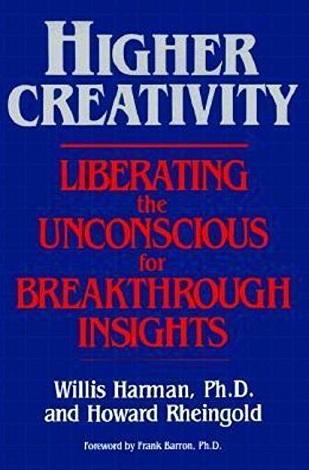




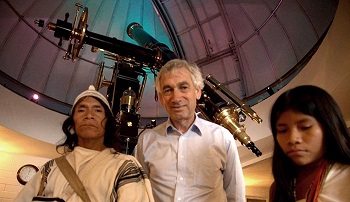
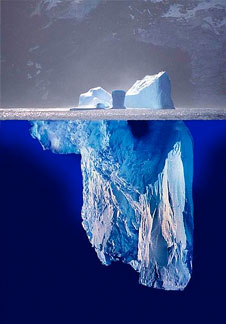
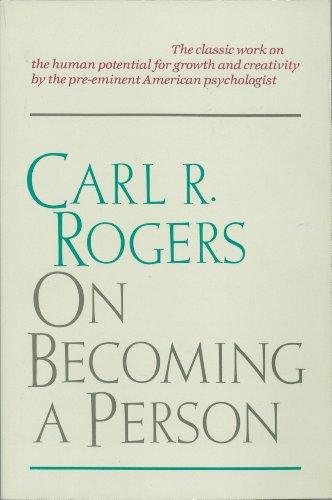
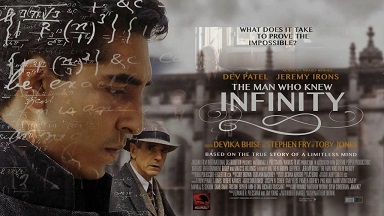

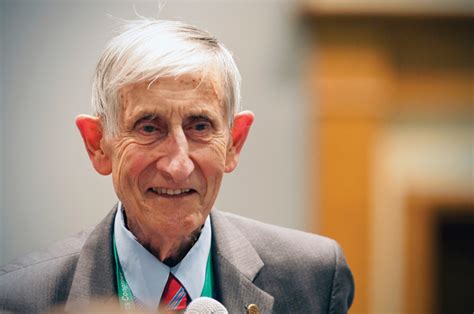
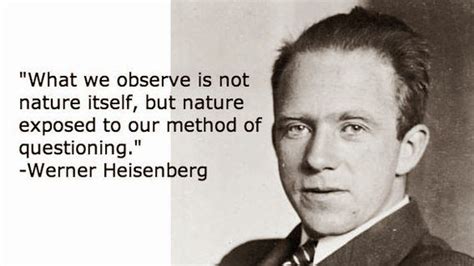
.jpg)
